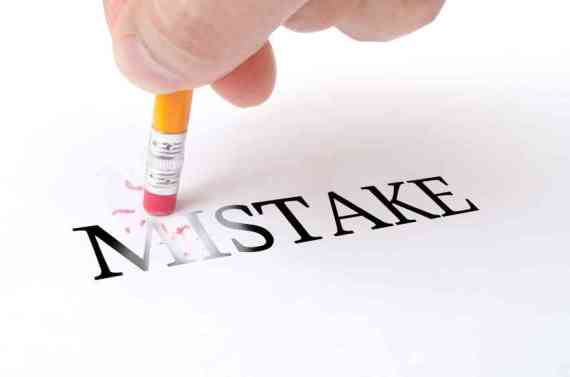One Thing That Kills Trust
Who do I trust? And why do I trust them? There are a lot of things that play a role in whom I trust.
Integrity, consistency, and reliability are just a few. I trust people who display these attributes – most of the time. However, even the most honest, consistent and reliable person will lose my trust if they are arrogant.
Humility inspires trust. Arrogance creates doubt.
Doubt kills trust.
How Arrogance Creates Doubt
I have run into many arrogant people in my life. In fact, I am sure some people in my past believe I am the pot calling the kettle black! If any of you are reading this right now, I apologize. I am a work in progress, and I hope I have grown in this area.
I just illustrated one of the ways I have tried to grow in this area – admitting failure. Too many people have a hard time admitting failure or weaknesses. It’s ironic really. Most of us are good at identifying fault in others, but refuse to see it or admit it in ourselves.
What message do we send to others when we never admit mistakes, weaknesses or ask for forgiveness?
Perfection.
If I never own up to being fallible, then I must think I am infallible!
That is logical conclusion most people will make. The thing is, everyone knows I am fallible. Only one guy in history was ever perfect and everyone knows I am not him!
Therefore, if they all know I am fallible, yet I portray myself as infallible I will cause them to doubt.
- “I know he makes mistakes, so what is Dave covering up?”
- “Who is he when I am not looking?”
- “What hasn’t he told me?”
- “Who is he going to try to blame instead?”
It does not matter how honest I may be. It does not matter how consistent I may be. It does not matter how reliable I may be. People will doubt because they will see me as arrogant.
A Scary Yet Related Story
I taught High School Boys Sunday School class for a couple of years. One day as we were talking about the subject of forgiveness, I asked my 20 guys a question.
“How many of you have ever heard your parents apologize to you for a mistake they made that affected you?”
One hand went up. Only one. Scary.
We wonder why teenagers and young adults have a hard time owning up to their mistakes? Is it because it was not modeled for them at home?
We wonder why teenagers and young adults don’t trust their parents and/or rebel? Is it because they know we are fallible people acting like we are infallible? Is it because the hypocracy of our actions makes them doubt us and trust is killed?
People Trust Humility
It takes Humility to own up to our failures. Most people don’t expect their boss, their spouse, their parent or their friend to be perfect. So why portray ourselves that way?
Not admitting my weaknesses or my failures is a habit. The good news is we can create a new habit one decision at a time. I know from experience.
It was not easy the first time I said to my wife, “It’s my fault. I was wrong. Please forgive me.” It was not easy the first time I did it with my boss or my sales team either.
However, just like any other decision in life, each time I made that choice, it made it easier to make the same choice the next time. Each time I admitted a mistake, it stung my pride a little less.
I decided I wanted to be trusted by my family, my friends and my collegues at work. It didn’t happen overnight, but my willingness to admit my faults changed our relationships.
The development of Humility is just one of the Habits of Character we dig into in our new book:
Becoming a Leader of Character
Six Habits that Make or Break a Leader at Work and at Home
(Preorder here: bit.ly/LOCBook)
The Bottom Line:
I don’t believe people think I am hiding anything any more. I believe my willingness to admit my failures, weaknesses and mistakes has created a level of trust that I never achieved when I was acting infallible.
All it took for me was to begin saying, “It’s my fault. I was wrong. Please forgive me.”
This is not a theory. This worked for me. I know it changed many of my most important relationships at home and at work. Try it.
Humility inspires trust. Arrogance creates doubt.
Doubt kills trust.
Question:
Who needs to know you are fallible?


Dave- great article. Here’s how I think about trust.
Integrity means keeping your word and your promises. Integrity makes one trustworthy. Trustworthiness builds trust.
Everything about our character impacts whether people will trust us. Integrity is perhaps the biggest.